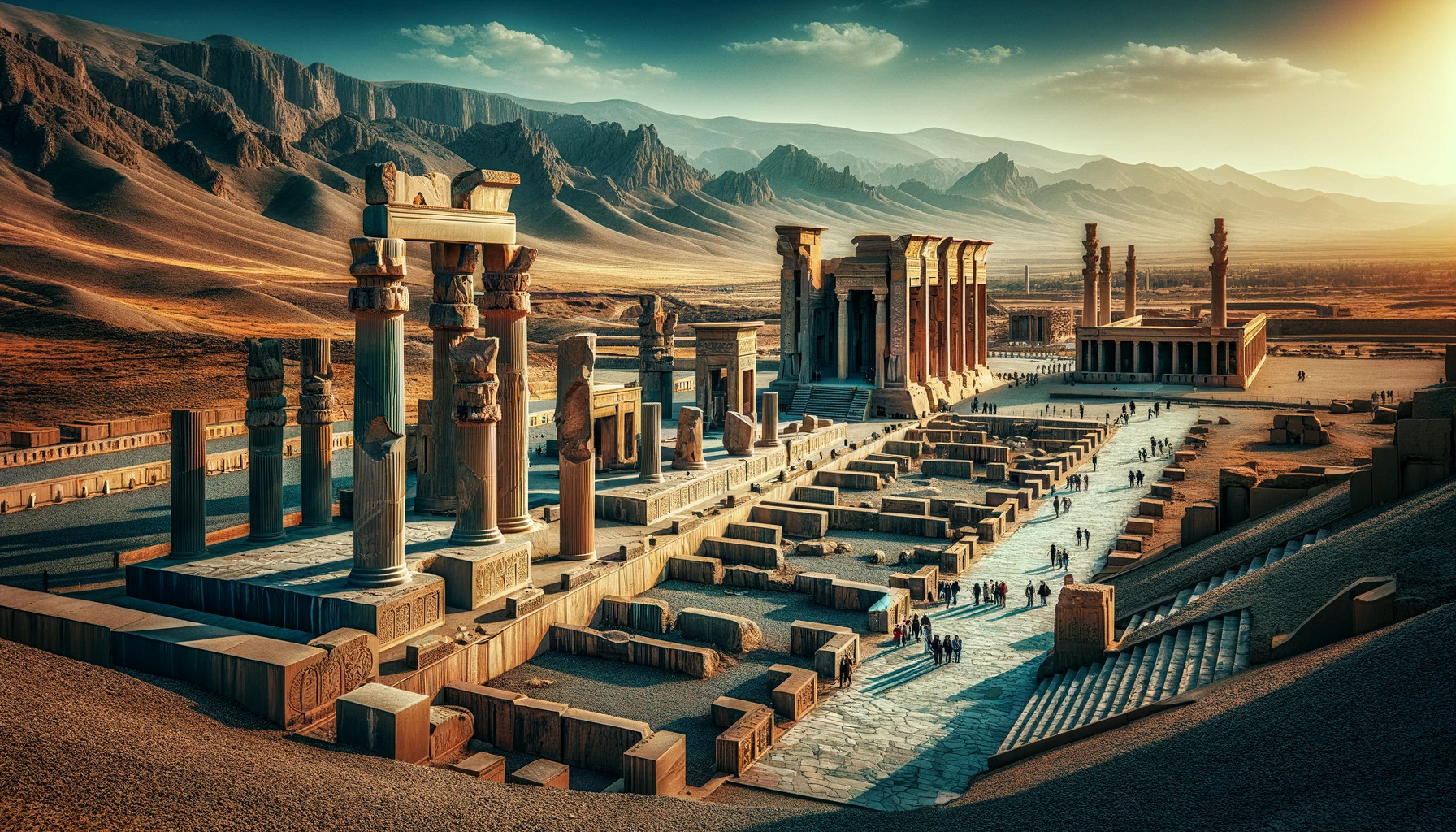Iran is a country with a profound historical legacy, rich cultural traditions, and significant geopolitical influence. It continues to navigate complex domestic and international landscapes, balancing its rich heritage with contemporary challenges.
List of National and Public Holidays in Iran for the year 2025
- New Year’s Day is on Wednesday, 1st January 2025.
- Birthday of Imam Ali is on Monday, 13th January 2025.
- Mabaath is on Monday, 27th January 2025.
- Anniversary of the Islamic Revolution is on Tuesday, 11th February 2025.
- Birthday of Imam Mahdi is on Friday, 14th February 2025.
- Oil Nationalization Day is on Thursday, 20th March 2025.
- Novruz Holiday is from Friday, 21st March 2025 to Sunday, 23rd March 2025.
- Martyrdom of Imam Ali is on Friday, 21st March 2025.
- Eid al-Fitr is on Monday, 31st March 2025.
- Eid al-Fitr Holiday is on Tuesday, 1st April 2025.
- Islamic Republic Day is on Tuesday, 1st April 2025.
- Sizdah Bedar is on Wednesday, 2nd April 2025.
- Martyrdom of Imam Sadeq is on Thursday, 24th April 2025.
- Demise of Imam Khomeini is on Wednesday, 4th June 2025.
- Khordad National Uprising (1963) is on Thursday, 5th June 2025.
- Eid al-Adha is on Friday, 6th June 2025.
- Eid al-Ghadir is on Sunday, 15th June 2025.
- Tassoua is on Saturday, 5th July 2025.
- Ashura is on Sunday, 6th July 2025.
- Arbaeen is on Friday, 15th August 2025.
- Death of Prophet Muhammad is on Saturday, 23rd August 2025.
- Martyrdom of Imam Hasan is on Saturday, 23rd August 2025.
- Martyrdom of Imam Reza is on Monday, 25th August 2025.
- Martyrdom of Imam Hassan Asgari is on Monday, 1st September 2025.
- Prophet Muhammad’s Birthday is on Wednesday, 10th September 2025.
- Birthday of Imam Sadeq is on Wednesday, 10th September 2025.
- Martyrdom of Hazrat Fatemah is on Monday, 24th November 2025.
List of National and Public Holidays in Iran for the year 2024
- Birthday of Imam Ali: Thursday, 25 January 2024
- Mabaath: Thursday, 8 February 2024
- Anniversary of the Islamic Revolution: Sunday, 11 February 2024
- Birthday of Imam Mahdi: Sunday, 25 February 2024
- Oil Nationalization Day: Tuesday, 19 March 2024
- Novruz Holiday: Wednesday, 20 March 2024 to Saturday, 23 March 2024
- Islamic Republic Day: Sunday, 31 March 2024
- Martyrdom of Imam Ali: Monday, 1 April 2024
- Sizdah Bedar: Tuesday, 2 April 2024
- Eid al-Fitr: Wednesday, 10 April 2024
- Eid al-Fitr Holiday: Thursday, 11 April 2024
- Martyrdom of Imam Sadeq: Saturday, 4 May 2024
- Demise of Imam Khomeini: Monday, 3 June 2024
- Khordad National Uprising (1963): Wednesday, 5 June 2024
- Eid al-Adha: Monday, 17 June 2024
- Eid al-Ghadir: Tuesday, 25 June 2024
- Tassoua: Monday, 15 July 2024
- Ashura: Tuesday, 16 July 2024
- Arbaeen: Sunday, 25 August 2024
- Death of Prophet Muhammad: Monday, 2 September 2024
- Martyrdom of Imam Hasan: Monday, 2 September 2024
- 2. Martyrdom of Imam Reza: Wednesday, 4 September 2024
- 3. Martyrdom of Imam Hassan Asgari: Thursday, 12 September 2024
- Prophet Muhammad’s Birthday: Saturday, 21 September 2024
- Birthday of Imam Sadeq: Saturday, 21 September 2024
- Martyrdom of Hazrat Fatemah: Thursday, 5 December 2024

History
- Ancient Civilization: Known historically as Persia, Iran’s history dates back to the ancient Elamite kingdoms and the Achaemenid Empire established by Cyrus the Great.
- Islamic Conquest and Dynasties: Conquered by Muslim Arabs in the 7th century, leading to the spread of Islam. Various dynasties have ruled, notably the Safavids who established Shia Islam as the state religion.
- Modern Era: The 20th century saw significant changes, including the Pahlavi dynasty’s rule, the 1979 Islamic Revolution, and the establishment of the Islamic Republic.
Geography
- Location: Located in Western Asia, bordered by the Caspian Sea to the north and the Persian Gulf and Gulf of Oman to the south, sharing borders with several countries including Iraq, Turkey, Armenia, Azerbaijan, Turkmenistan, Afghanistan, and Pakistan.
- Varied Terrain: Features a diverse landscape including mountains, deserts, and coastal plains.
- Climate: Predominantly arid or semi-arid, with subtropical along the Caspian coast.
Culture
- Rich Heritage: A cradle of civilization, Iran’s culture is rich in literature, philosophy, art, music, and architecture, with notable contributions to science and mathematics in the Islamic Golden Age.
- Religion and Festivals: Predominantly Shia Muslim, with important religious and cultural festivals like Nowruz (Persian New Year) and Ashura.
- Cuisine: Known for its diverse and flavorful cuisine, including dishes like kebab, rice (chelow), and stews (khoresht).
Economy
- Natural Resources: Rich in natural resources, particularly oil and natural gas, which are major contributors to the economy.
- Diversification Efforts: Efforts to diversify the economy include development in sectors like technology, manufacturing, and agriculture.
- Sanctions and Challenges: Faces economic challenges, partly due to international sanctions and a need for economic reforms.
Society
- Population: Ethnically diverse, with Persians being the largest group, along with Azeris, Kurds, Lurs, and others.
- Languages: Persian (Farsi) is the official language. Various other languages are spoken by ethnic minorities.
- Education and Healthcare: A strong emphasis on education, with significant progress in healthcare access and quality.
Environmental Issues
- Challenges: Environmental challenges include water scarcity, air pollution, and desertification.
- Conservation Efforts: Efforts are underway to address environmental issues, including reforestation and wildlife conservation.
Government and Politics
- Islamic Republic: A unique political system that combines elements of theocracy and democracy, with a Supreme Leader and an elected President.
- Domestic and Foreign Policy: Iran’s domestic and foreign policies are shaped by a combination of religious, nationalistic, and geopolitical factors.
Tourism
- Historical and Cultural Sites: Home to numerous UNESCO World Heritage Sites, including Persepolis, Isfahan’s Islamic architecture, and the ancient city of Yazd.
- Natural Beauty: Offers diverse landscapes for eco-tourism, from the Alborz and Zagros mountains to the Persian Gulf beaches.

